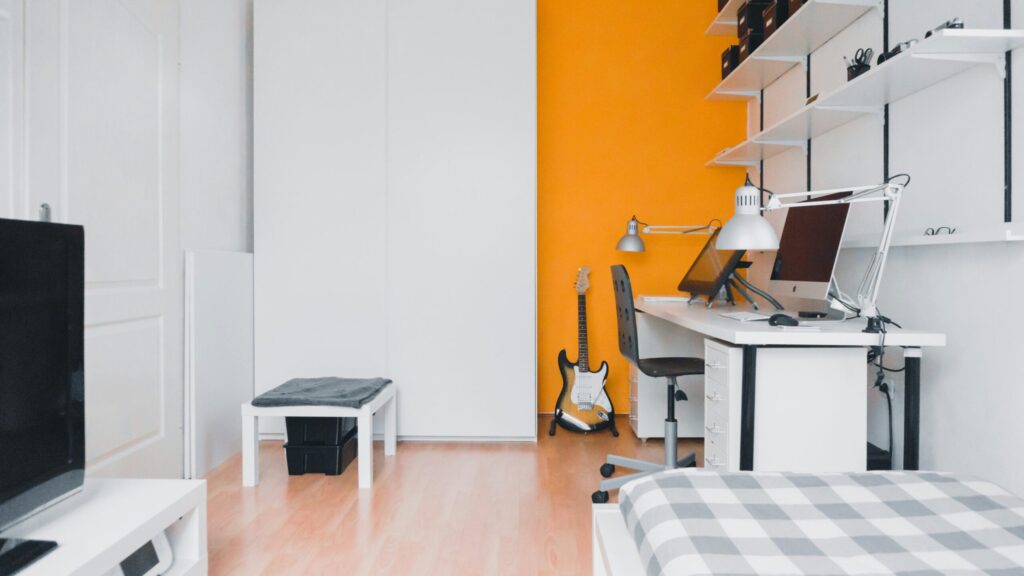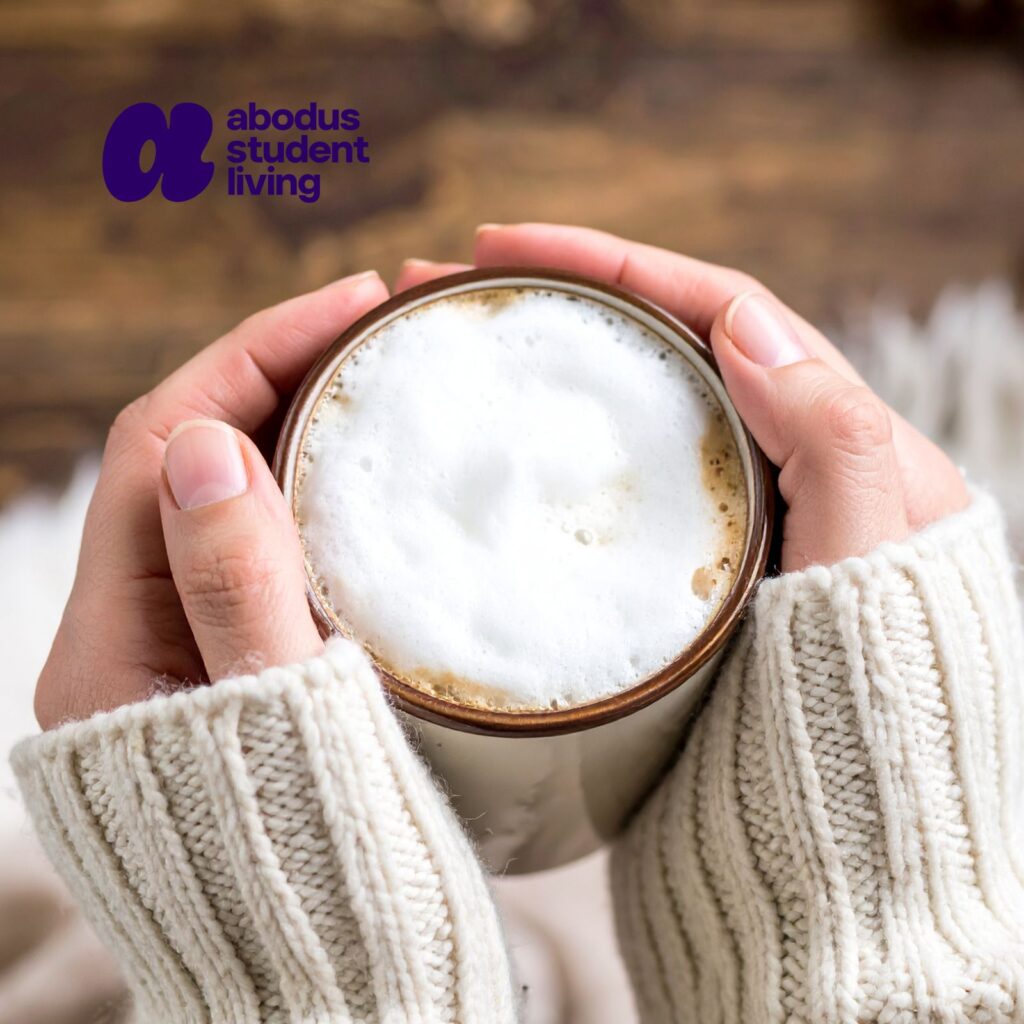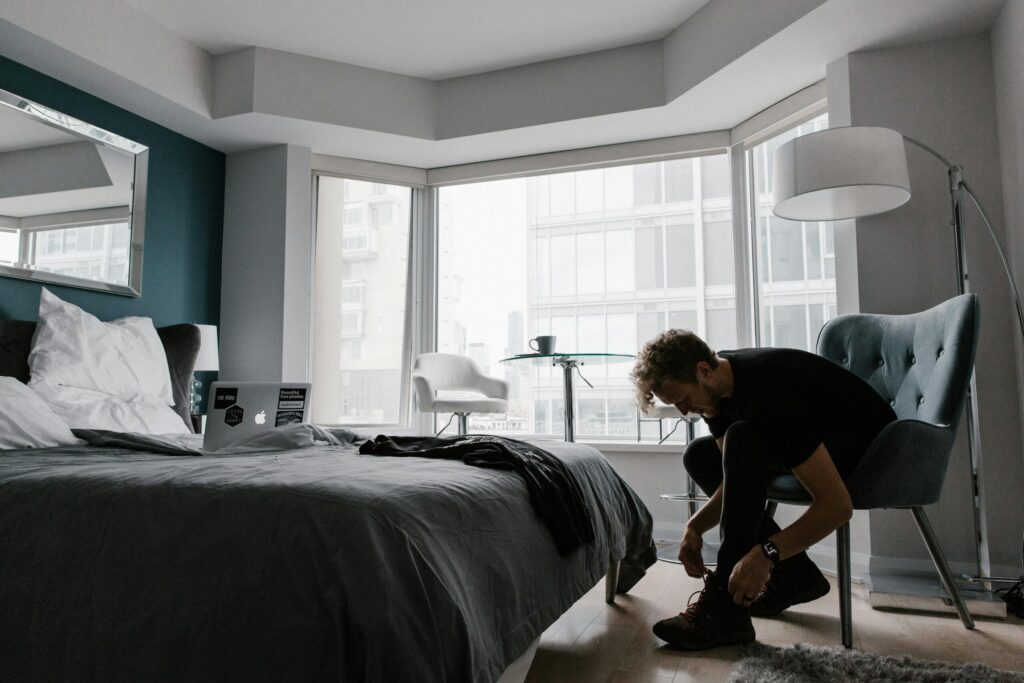
Sleep. Perhaps not your number one priority as you approach University life? Something that just happens? Sometimes we want more – sometimes we happily forgo it. However we look at it, sleep is something we all need; it is essential for life.
Perhaps you sleep well most of the time and have no worries. Wonderful! For those who sometimes don’t, for whatever reason, I hope you will find something here that may help.
The quality of your sleep can be an indicator of your overall health. Unfortunately disturbed sleep, not getting enough sleep or enough deep sleep is very common. Often, when you are young, you can carry on after a bad night and yet, with the pressures of university life, sufficient sleep is crucial for the whole body to rest and heal. Physical, mental and emotional benefits are clear. We all feel better after a good sleep.
The longest someone has been without sleep is about 11 consecutive days. I wouldn’t recommend it. After just three you can find yourself hallucinating. Those of you who have disturbed sleep will recognise the detrimental effect on your energy levels and clarity of thinking. A certain amount of deep sleep (as opposed to lighter stages of sleep or REM, dreaming sleep) is critical for the body to heal. Neuroscientists now know that deep sleep sends pulses to the cerebral spinal fluid, effectively cleaning the brain and preventing some brain disorders.
Overall, in this age of technology, artificial light and a culture of filling each moment, our sleep patterns have become more detached from our natural rhythms. We have increasingly lost touch with the seasons, the hours of daylight and how our body reacts to them. More on that later…
There are a multitude of things that can affect your sleep; habits, stress, workloads, the weather, the phase of the moon (really!), technology, food and drink, how much fresh air you’ve had, exercise, illness, your age… the list goes on. There are many of these that you can’t control and sometimes it is helpful to acknowledge that. However, some things you can control and the Harmony in Health team has some suggestions below.
This article is not an invitation or instruction to go to bed early every night or fret about hours of deep vs. REM sleep – you have a life to live! Nor is it to recommend expensive sleep products or hard to follow routines. However, here are some tips that may help if you’d like to improve your shuteye – holistically, naturally and cheaply!
Tip 1: Go outside in the morning
Our circadian rhythms are physical, mental and behavioural changes that follow a 24-hour rhythm. These change with the seasons and can become ‘out of sync’ – for example, if we always eat or sleep at different times of the day. Exposure to daylight is one way to maintain a healthy circadian rhythm and help sleep. Research shows that going outside, especially before 10am in the morning, can regulate hormone levels, particularly serotonin – effectively reminding your system that it is daytime, not to mention the other benefits to wellbeing of having a walk in the fresh air.
Tip 2: Rest in the day
It may seem strange to say but if you manage to have a rest during the day – you will also sleep better at night.
A rest doesn’t have to be a sleep, although many cultures traditionally recognise that a siesta in the middle of the day can do wonders for energy levels.
Try to find a few minutes to lie down in the day, perhaps with your feet flat on the floor, and let your body spread out with gravity and have a break. If you find your mind racing, try listening to a short yoga nidra or constructive rest recording (there are plenty of free good ones online), or some music you enjoy.
A rest could also be just doing something different and joyful; sitting outside, for example, and as weather improves even feeling the sun’s rays on your face or listening to the sounds around you. A rest could be as simple as stopping sometimes. Stopping and noticing a few deep breaths. A rest reduces stress in both body and mind, meaning that stress has built up less by the time you go to bed. If you have a relaxed and good day, you are more likely to have a relaxed and good sleep!
Tip 3: Choose food and drink that helps
We are sometimes aware that if we eat a lot of food, or rich food, late in the evening then we do not sleep as well. Ancient wisdom, for example from Ayurvedic medicine, shows that digestion is best when the sun is highest, i.e. in the middle of the day, so ideally eat your biggest meal then; protein or anything pungent (onions, garlic) or gassy (beans etc.). If you can’t have your main meal in the middle of the day, then try to have it at or around 6pm.
In the evening, or late afternoon, try eating gentler, lighter, mostly carbohydrate foods. Having a gap before eating and bed gives the body time to digest and calmer sleep.
If you find yourself agitated or restless before bed, making some herbal tea can become a soothing routine that leads to better quality sleep. Lemon verbena, camomile, linden (which tastes like honey), lavender or lemon balm – or a combination of these are all very effective. Caffeine (in tea, coffee and energy drinks), alcohol and chocolate can impair sleep!
Tip 4: Ditch tech just before – and in – bed
It is a fact that looking at screens before sleep leads to less deep sleep and more disturbed dreams. Allowing yourself a space between screens and bed could be the little change you need for your system to ready itself, naturally, for sleep.
Try a technology detox – perhaps just one evening – without screens, television or phones. What will you find with the precious time created?
Tip 5: Treat yourself!
The hour or so before bed is a time to allow your body to calm down a little after the day and to prepare for rest. It can be a lovely act of self-compassion to allow yourself this time and cultivate a few gentle habits that help you ease into sleep.
You could treat yourself – perhaps enjoying a bath, dropping some lavender essential oil on your pillow or massaging your feet (sesame oil is very grounding and can help sleep). You could try some gentle movements whilst noticing your breath. It is better to do your more vigorous exercise practice earlier in the day. Singing, reading or writing a journal can help us unwind and release the tensions of the day.
Organise your environment in a way that pleases you. Certainly for myself I find it harder to sleep in too much clutter!
In the moments before sleep it can be soothing to take time to recollect your day and perhaps feel grateful for something that has happened or that is in your life. We only have so many days in our lives and…here is another one lived.
Written by Julia Outlaw, Director at Harmony in Health







